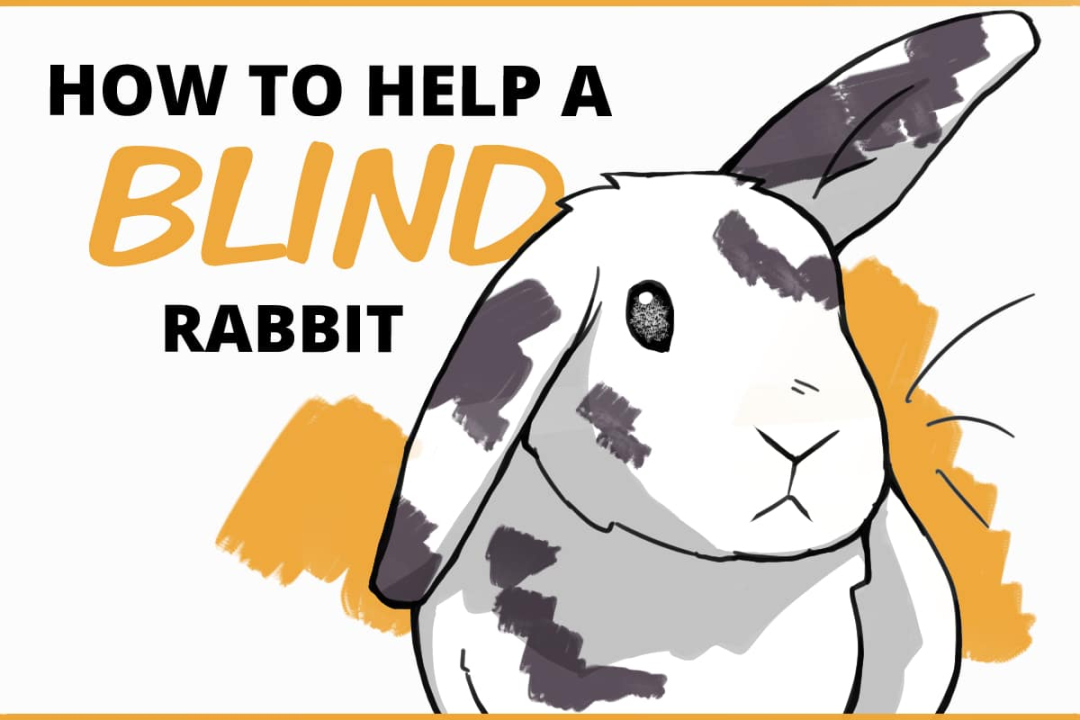How Can I Tell If My Albino Rabbit Is Blind?
Albino rabbits, with their striking white coats and red or pink eyes, are a popular choice for many pet owners. However, due to their lack of pigmentation, albino rabbits can be more prone to certain health issues, including vision problems. If you suspect that your albino rabbit may be blind, there are several signs you can look for to confirm your suspicion.

Signs of Blindness in Albino Rabbits
- Lack of reaction to visual stimuli: If your albino rabbit does not react to movement or changes in light, it could be an indication that they are blind. Observe their behavior when you move objects in their line of sight or when you turn the lights on and off.
- Bumping into objects: Blind rabbits may frequently bump into objects in their environment, as they are unable to see and navigate around them. Keep an eye out for any signs of repeated clumsiness or frequent collisions with furniture, walls, or other objects.
- Tilting or shaking of the head: Rabbits with vision problems may exhibit head tilting or shaking as they try to compensate for their impaired vision. If you notice your albino rabbit displaying these behaviors, it is worth considering the possibility of blindness.
- Lack of grooming: Rabbits are meticulous groomers, but if your albino rabbit is blind, they may struggle to groom themselves properly. Pay attention to any changes in their grooming habits, such as matted or unkempt fur, as it could be a sign of vision impairment.
- Squinting or staring into space: Blind albino rabbits may squint or appear to be staring into space. They may have difficulty focusing their eyes or may not exhibit normal eye movements. Watch for these signs as they could indicate a loss of vision.
Confirming the Blindness
If you have noticed one or more of the signs mentioned above, it is essential to consult with a veterinarian for a proper diagnosis. A veterinarian will be able to perform a thorough examination of your albino rabbit’s eyes and determine if they are indeed blind.
The examination may include:
- Visual assessment: The veterinarian will evaluate how your rabbit responds to various visual stimuli, such as light changes and movement. This assessment helps determine the extent of the vision loss.
- Ophthalmoscopy: This procedure involves examining the internal structures of the eye using a special instrument called an ophthalmoscope. It allows the veterinarian to identify any abnormalities or damage that may be causing the blindness.
- Eye pressure measurement: Increased eye pressure can be a sign of certain eye conditions that can lead to blindness. The veterinarian may measure the eye pressure to rule out possible causes.
- Blood tests: In some cases, blood tests may be conducted to check for underlying health issues that could be contributing to blindness.
FAQs
Can albino rabbits develop blindness over time?
Yes, albino rabbits can develop blindness over time due to various factors such as genetic predisposition, age-related degeneration, or eye infections. Regular veterinary check-ups are recommended to monitor their eye health.
Are albino rabbits more prone to blindness than other rabbits?
Albino rabbits are not inherently more prone to blindness than other rabbits. However, their lack of pigmentation can make them more susceptible to certain eye conditions. Proper care, including regular veterinary check-ups, can help minimize the risk.
Can blindness in albino rabbits be treated?
The treatment options for blindness in albino rabbits depend on the underlying cause. While some conditions may be treatable or manageable, others may be irreversible. It is essential to consult with a veterinarian to determine the best course of action.
How can I help my blind albino rabbit adapt to its environment?
There are several measures you can take to help your blind albino rabbit adapt to its environment. These include maintaining a consistent layout of their enclosure, using scents or textures to mark important areas, and providing plenty of auditory cues to help them navigate.
It is important to note that while blindness can significantly impact an albino rabbit’s quality of life, they can still lead happy and fulfilling lives with proper care and accommodations. Always consult with a veterinarian for guidance on how to best support your blind rabbit’s specific needs.
Related Articles…
Copyright Notice:
This website utilizes images found online, all copyrights are retained by their original owners. If you would like an image removed, kindly contact us.